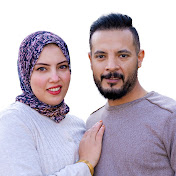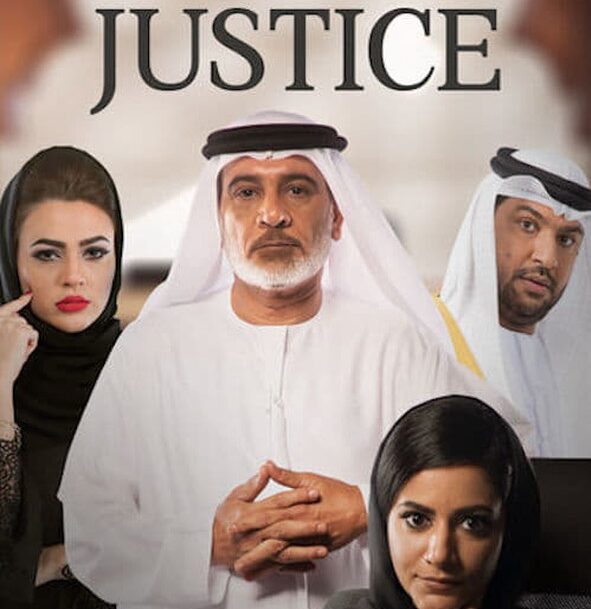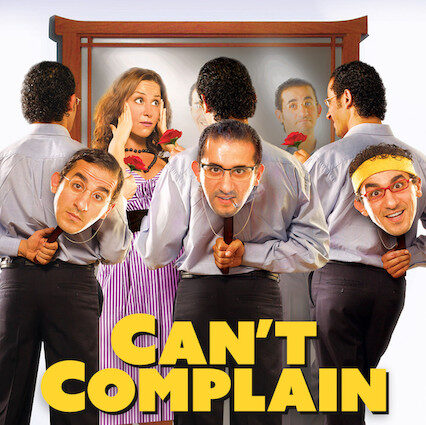Greetings in Arabic
Activities (Lesson Plans)
Religious-Based Expressions in Arabic
PRACTICAL IDEAS & RESOURCES
Resources in this section curated by: Bushra Elfandi
ALHAMDULILLAH

الأرض المسطحة مع القمندة 🌍 | YouTube Video (until 1:51)
Alhamdullah isn’t the only possible form, and it can be combined with other phrases indicating ‘good’. In this clip, a podcast host is greeting his guest. They are partly talking over each other. They use a two-part greeting ‘how-you?’ and ‘what your-news?’ in a single utterance. The guest uses alhamdullah, but the host says Allah ysallmak, meaning ‘God strength-you’.

#ABtalks with Hend Sabry - مع هند صبري | YouTube Video (until 1:00)
Greeting exchanges don’t always need to be formulaic. The host asks: ‘honestly how are you?’, suggesting that the guest give an honest response. The guest mentions difficulties but looks on the bright side by saying she’s happy. The hamdullah comes at the end after a moment's pause.

#ABtalks with Latifa - مع لطيفة | YouTube Video (until 1:40)
This guest talks about being well in an extended fashion, saying alhamdulillah multiple times. She uses multiple ways of saying ‘fine’ rather than going into specifics. The repeated hamdullah with various formulations of ‘I’m well’ shows its importance in a felicitous response. She also says ‘nahmed rab al-3alemin hamdullah’, meaning ‘I thank the Lord of the Universe hamdullah’, as an extended form.

Text Chat | Discord Messages

This is a greeting exchange on a language learning Discord channel. Multiple people respond and continue the exchange by asking ‘and you?’ rather than repeating the whole greeting.

Arriving at a destination / Finishing an activity | YouTube Video (until 8:10)
The vlogger says hamdullah after arriving at different destinations and when finishing the vlog. He asks his friend ‘how was today?’ The friend replies ‘hamdullah o Lord’. Saying hamdullah after an activity could express that the activity went well/safely. It could also be similar to an expressive statement, but it doesn’t contain the same degree of excitement.
EXPRESSING JOY AND GRATITUDE AT A GOOD OUTCOME

امى سابت البيت قبل الفطار بسبب مراتى..!! | YouTube Video (until 1:13)
The couple is saying they’ve returned to Youtube after difficulties. They express gratitude towards their audience and another Youtuber who helped them. Hamdullah is repeated around six times with some energy emphasizing their sincerity. They also use a lot of gestures, such as him clapping his hands together or her kissing her hand, further emphasizing their sincerity.

وصلنا للكنز اخيراً...💰(اصبحنا اغنى عائلة فى مصر😲)) | YouTube Video (until 15:50)
This clip is in a gameshow-esque video where participants are digging up a treasure. The child says hamdullah in response to the mother’s excitement. She says hamdullah, which the children echo in response. In addition to expressing excitement, echoing could be seen as a way to align with the sentiment of the other person.
EXPRESSING CONTENTMENT AT SITUATIONS IN LIFE

Bittersweet Clip | YouTube Video
This scene comes from the film Bittersweet, where the Egyptian Masry returns to Egypt after 20 years, living most of his life in the US. He has many over-the-top instances of pragmatic failure and misunderstanding. In this scene, he is upset at his difficulties in Egypt and asking if people are actually happy here. The older figure replies, emphasizing the Egyptian outlook of seeing the silver lining and saying alhamdulillah, whereas Masry’s outlook could lead to denying God. Thus, although it is overdramatized here, alhamdulillah can reflect a certain cultural attitude. The older figure is also correcting Masry’s attitude towards a more appropriate one.

ماذا حدث لمصري في لندن بعد أن لف الحبل على رقبته ورمى بنفسه من أعلى الشجرة؟ | YouTube Video (until 4:32)
This video is about an Egyptian man in England who had turned his life around after being saved from a suicide attempt. He is discussing the restaurant stand he runs. He says alhamdulillah, expressing contentment with his current life and how far he has come.

شاحن طاقة الامتنان..حققي هدفك واجدبي ما تحب لحياتك | YouTube Video (until 8:37)
This woman is talking about how one should be content with their lot in life. If things are imperfect we should say ‘alhamdulillah at least I have such-and-such’. This reflects somewhat of a prescriptive attitude over why one should adopt this stance of alhamdulillah.
INSHA’ALLAH

أسئلة مع الوالد! شكرا 3 مليون مشترك | Q&A With My Father | YouTube Video
In this clip, a man is having a conversation on the phone with a woman. He ends the call with good-bye and promises that she will see the clip that they recorded together ‘tomorrow’, adding insha’Allah.

Conversation | Discord Messages

In this exchange between two users on a language learning Discord server, one user urges the other, in a joking manner, not to forget if they ever experience the small likelihood of the encounter. The other user is seen to code switch with إن شاء الله Insha’Allah accompanied with a laughing emoji displaying agreement to the request with humor.

This exchange was found on a language learning Discord server where the first user requests of the other user to send them the information through a private message. The second user is seen to show agreement and commitment to the request through the code-switching of إن شاء الله “Insha’Allah".

Justice Snippet | Netflix Show
7:44 سمحوني. Excuse me.
7:45 ماتنساش يا اسماعيل. Don't forget.
7:46 إن شاء الله. I won't.
In this episode, three people are conversing with each other. One man (Ismail) leaves the group with an excuse me, and another calls out to him saying “Ismail, don’t forget”. Ismail mutters Insha’Allah as he leaves. The usage of this expression in this context demonstrates that Ismail is not committed to the agreement, but instead of rejecting he uses Insha’Allah as a mitigator.

Justice Snippet (Episode 1) | Netflix Show
23:07 ان شاء الله ولو اني وايد مشغولة بس انت مع الامر I'm so busy, but anything for you, Dad.
In this episode, a father asks his daughter if she can assist him with a case. The daughter appears to be non-committing to the request, and instead of flatly rejecting she provides the reason that she is busy, along with prefacing it with Insha’Allah.

Phrase Example | Libyan Arabic
“ان شاء الله تجي هني مرة ثانية” “I hope you’ll come back again”
This utterance is an example of how intonation causes a shift in pragmatic meaning. If the last word in the utterance ends with a high-low intonation, it demonstrates an expression of eagerness and hope that one would like the person to come again. However, with a low-high contour, this utterance can be used as a threat, where the interlocutor is dared not to come again so eagerly.
INSHA’ALLAH AS A DIRECTIVE (ORDERING, REQUESTING, AND QUESTIONING)

Phrase Example
“إن شاء الله تنفيذ أوامرك” “I would like you to carry out your orders”
In this example, Insha’Allah is prefaced before the command statement, not only to soften its effect but also for the speaker to convey to the interlocutor that they anticipate the orders being done in the near future.

Phrase Example
“إن شاء الله بيض وجهنا” “We would like you to give a good image of us”
In this example Insha’Allah is prefaced before the request of hoping and asking someone to provide and present a good image of the group.
“إن شاء الله انك رسبت الفصح” “إن شاء الله مش زعلان” “You are not upset, are you?” “You didn’t fail the exam, did you?” In these two examples of Libyan and Jordanian Arabic, the expression Insha’Allah when pronounced with a rising-falling intonation demonstrates the introduction to the tag question. The usage of Insha’Allah can serve as a softener to the inquiry of such personal or sensitive topics.
INSHA’ALLAH AS ASSERTIVE

Justice Snippet (Episode 1) | Netflix Show
جبت الكعة? - Did you bring the cake?
اه ان شاء الله- Yes
28:46 شكراً، "منال". Thanks, Manal.
28:48 هل عرفت شيئاً؟ You learn something
28:49 إن شاء الله. I think so.
From Justice episode 1, the lawyer Farah is interviewing a family member of her client for evidence, but the client says she can’t remember anything. As Farah turns to leave, the interviewee’s mother asks if she learned anything. Her use of insha’Allah is a non-committal affirmative that saves face by not outright saying the interview hadn’t been helpful. The English subtitle implies a more certain affirmation, but it would ultimately depend on the tone and delivery of insha’Allah.

Bittersweet Snippet
1:57:57 - زيت حار يا عم "ربيع"،؟ - إن شاء الله.
-Spicy sauce, Uncle Rabih, right? -Yes.
This example comes from the Egyptian movie Bittersweet. The character Masry is ordering food from a food stand owner he knows and asks to confirm it comes with spicy sauce. The owner replies with insha’Allah as an affirmative, without the non-committal aspect of the previous example.
INSHA’ALLAH AS AN EXPRESSIVE FOR HOPING, WISHING, AND CONGRATULATING

Phrase Example
“إن شاء الله بسيطة” “Hopefully, it was something minor”
This phrase is often seen as an opening to an apology, but in some cases can come across as face-threatening as it is seen as a “soother” when some awry happens. It is often used to demonstrate solidarity when something wrong happens.

Phrase Example
“ان شاء الله اخوك بينجح في الامتحان” I hope your brother passes the exam.
Insha’Allah here is used to convey the speaker’s well wishes to the interlocutor.

Phrase Example
“عقبالك ان شاء الله”
In Libyan Arabic this expression is commonly found as a response to when someone is being congratulated on a wedding or a graduation ceremony. The usage of insha’Allah here is presented as an expressive way of wishing for the interlocutor to also experience the same successes in life.

فطارنا اليوم فى الشارع:محشى مشكل على الكنون🔥شكرا يارب🤲 | YouTube Video
The usage of insha’Allah here demonstrates backchanneling along with solidarity of the man showing that he has the wishes that the women just conveyed.

Justice Snippet (Episode 1) | Netflix Show
18:40 يالله ان شاءالله يا رب ان هذه القضية تنتهي على خير. I just hope that it all ends well.
18:44 إن شاء الله. I hope so too.
This scene features two women talking about the case that’s being worked on. One says insha’Allah expressing her hopes for it, surrounded by two invocations of God ‘O God!’, ‘O Lord!’. The other woman echoes her sentiment with another insha’Allah.

Ep 60: الأصدقاء | YouTube Video
In this dialogue clip it presents the women conveying her wishes of success. The interlocutor uses Insha’Allah not only as a backchanneling function, but also through a usage of solidarity where he also wishes for the women’s hopes to come true.

#ABtalks Together with Passant & Farrag - مع بسنت و فراج | YouTube Video
In this clip a man talks about his wishes of changing his current situation for the better and uses Insha’Allah to present his hopes for a brighter future.
MASHA’ALLAH
MASHA’ALLAH FOR COMPLIMENTING

Whispers (Episode 2 Snippet) | Netflix Show
3:51 شركة خاصة بالتطبيقات، My own app development company!
3:53 أنت عارف أن هذا حلم حياتي. You know, that's always been my dream.
3:56 كإنك تقرا إللي في راسي. It's like you read my mind.
3:58 شفت، أقولك مجنونة شغل بتحب الشغل وعشان كده أنا متمسك فيها، See? I told you she's crazy about her work. That's why I hold on to her.
4:02 - ما شاء الله عليكي يا "أروى" ما شاء الله عليكي. - ["أروى" تضحك] You're fantastic, Arwa. Truly amazing!
A boss is complimenting his employee’s good attitude during a meeting. The ‘masha’Allah upon you’, repeated twice, functions as praise, but it also contextualizes the previous utterance. The comment about her work ethic might not come off as a compliment without the solidarity building of masha’Allah.

Whispers (Episode 3 Snippet) | Netflix Show
24:13 [تضحك] تعالي حبيبتي، come here.
24:17 كبرتي ما شاء الله وصرتي عروس شوفك. You're all grown up, and so pretty!
24:20 ما شاء الله، ليه ما تسلمي على عمتك؟ Why don't you come here and give your aunt a hug!
24:23 تعالي. Come.
Here an aunt is complimenting her niece. Masha’Allah is first expressed alongside with a compliment to show that no envy is present from the speaker’s compliment. It is thus repeated in the second utterance as an emphasis.
MASHA’ALLAH AS EXPRESSING SARCASM

The Student Cop | Movie
35:07 - انت جت لنا من انهي المصيبة؟ من 3 يا افندم What disaster brought you to us? -Three, sir.
35:10 - نعم يا أخويا؟ - قصدي 3 مصائب يا افندم. -What? -I mean three disasters, sir.
35:13 جامعة القاهرة، وجامعة الإسكندرية، وجامعة جنوب الوادي. The University of Cairo, the University of Alexandria and the University of South Valley.
35:17 ما شاء الله! اترفدت من 3 جامعات! يا حاجة تشرف والله! Wow! You've been expelled from three universities? What an honor!
In this example, a teacher is speaking to a new student who has just come into class late. The teacher says masha’Allah and ‘what an honor!’ sarcastically to express his surprise at the student’s sudden entrance. It’s worth keeping in mind that this being a movie means that such dialog would be dramatized and over-the-top, so this sort of stance may or may not be found in a natural setting.

The Student Cop | Movie
46:37 ما شاء الله يا هانم! Really, young woman?
46:39 أحوّلت البيت إلى ملهى؟ You turned the house into a bar?
46:41 ماذا جاء بك الآن؟ What brought you here?
46:42 - ألا يجب أن تتصل قبل أن تجيء؟ - أتصل لأجيء إلى بيتي! -Call before you come! -Call before I come to my own house?
A father walks home when his daughter has friends over. He says masha’Allah expressing irritation, as he calls her demeaningly ‘young woman’. This could be seen as sarcasm, because it counters the expected use of masha’Allah as very positive. He adds the quip about turning the house into a bar.
MASHA’ALLAH AS AN EXCLAMATION

فطارنا اليوم فى الشارع:محشى مشكل على الكنون🔥شكرا يارب🤲 | YouTube Video
In this video a family is cooking a large meal to give out to people. The wife shows the large quantity of ingredients when she says masha’Allah. This can indicate gratitude for what they had so as to not appear boastful. She uses various other God-phrases, focusing on the charity aspect of the video.

Can't Complain | Movie
51s - [صراخ مولود] - بسم الله الرحمن الرحيم، الله أكبر. In the name of God! God is Almighty!
1:07 الله أكبر، الله أكبر. God is Almighty!
1:20 [باندهاش] الله أكبر! بسم الله الرحمن الرحيم! God is Almighty! In the name of God!
1:23 ما شاء الله! ما شاء الله! God bless!
In this scene, a woman is holding a baby she has just helped deliver. She is uttering words of prayer and praise while clasping the baby in her arms. This masha’Allah seems to express her feelings of emotion. The surrounding religious invocations suggest she is more consciously directing towards and invoking God.

الديك الرومي _ الافضل فى العزومات | YouTube Video (until 14:24)
Here, a woman is about to uncover the turkey she just cooked in a tutorial. She says masha’Allah along with a series of invocations of God such as bismillah ‘in the name of God’, used before commencing an activity. Thus the usage of masha’Allah may be to supplement this compensatory function. It could indicate that the dish turned out well, but she says with a plain intonation as if it were a filler word.
